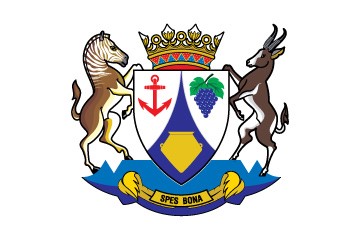Western Cape Government: About Us

The Western Cape Government creates laws for and provides services to the people of the Western Cape. We work closely with the national government and municipalities in the Western Cape to ensure that the citizens of the province have access to the services, facilities and information they need. We are committed to delivering an open opportunity society for all.
The Western Cape Government works in co-operation with the National Government of South Africa to create laws for and provide services to the people of the Western Cape.
- Premier of the Western Cape
- Western Cape Government
- Overview of the Western Cape
- Constitution of the Western Cape
- Provincial Parliament of the Western Cape
- Provincial Cabinet of the Western Cape
- Vision
- Mission
- Values
- Provincial Coat of Arms
Premier of the Western Cape
Our Premier, Alan Winde, is the executive authority in the Western Cape, mandated by the Constitution to be the head of the Western Cape Government. The Premier also appoints the Provincial Cabinet, who jointly form the executive branch of the Provincial Government. Visit the Department of the Premier for more information on his work and vision for the province.
The Western Cape Government
The Western Cape Government (WCG) consists of 13 departments, namely:
- Department of Agriculture
- Department of Cultural Affairs and Sport
- Department of Economic Development and Tourism
- Department of Environmental Affairs and Development Planning
- Department of Infrastructure
- Department of Local Government
- Department of Police Oversight and Community Safety
- Department of Social Development
- Department of the Premier
- Provincial Treasury
- Western Cape Education Department
- Western Cape Government Health and Wellness
- Western Cape Mobility Department
Working with a budget of R89.316 billion over the 2025/2026 financial year, these departments are responsible for implementing laws and providing services to the people of the Western Cape.
Constitution of the Western Cape
The National Constitution permits each provincial legislature to adopt a constitution for its province. The Provincial Constitution must correspond with the National Constitution.
The Constitution of the Western Cape was adopted in 1998 and is available in the official languages of the province, Afrikaans, English and Xhosa.
Provincial Parliament of the Western Cape
The Western Cape Provincial Parliament is responsible for creating laws for the province within its realm of responsibilities as set out in the Constitution of South Africa. These responsibilities include creating provincial legislation dealing with:
- Environment
- Health services
- Housing
- Language policy
- Nature conservation
- Police services
- Provincial public media
- Public transport
- Regional planning and development
- Agriculture
- Road traffic regulation
- Tourism
- Trade and industrial promotion
- Traditional authorities
- Urban and rural development
- Vehicle licensing
- Welfare services
- Abattoirs
- Ambulance services
- Liquor licences
- Museums other than national museums
- Provincial planning
- Provincial cultural matters
- Provincial recreation and activities
- Provincial roads and traffic
Provincial Cabinet of the Western Cape
The executive arm of the Provincial Government is headed up by the Provincial Cabinet, which consists of selected members of parliament, appointed by the Premier. Each Cabinet Minister has a portfolio and is responsible for overseeing the work of their respective department(s).
The Cabinet Ministers and the Premier are charged with:
- Implementing provincial legislation.
- Implementing appropriate national legislation.
- Coordinating the functions of the Provincial Government and its departments.
- Preparing and initiating provincial legislation.
Members of the Provincial Cabinet
- Premier - Mr Alan Winde
- Minister of Agriculture - Dr Ivan Meyer
- Minister of Cultural Affairs and Sport - Mr Ricardo Mackenzie
- Minister of Economic Development and Tourism - Dr Ivan Meyer
- Minister of Education - Mr David Maynier
- Minister of Environmental Affairs and Development Planning - Mr Anton Bredell
- Minister of Finance - Ms Deidre Baartman
- Minister of Health - Mrs Mireille Wenger
- Minister of Infrastructure - Mr Tertuis Simmers
- Minister of Local Government - Mr Anton Bredell
- Minister of Mobility - Mr Isaac Sileku
- Minister of Police Oversight and Community Safety - Ms Anroux Marais
- Minister of Social Development - Mr Jaco Londt
Vision
Build a government that people trust.
Mission
The Western Cape Government will promote freedom and opportunity for all the people of the province through:
- Policies and practices that strengthen the Constitution.
- Creating the conditions for sustainable economic and employment growth.
- Alleviating poverty by providing a welfare safety net for those unable to provide for themselves.
- Ensuring the safety of every person.
- Capital and skills.
- Delivering clean, efficient, cost-effective, transparent and responsive public administration.
Values
- Competence.
- Accountability.
- Integrity.
- Responsiveness.
- Care.
- Innovation.
Mandates (Objectives)
1. Increase economic empowerment for all the people of the Western Cape.
2. Reduce poverty by promoting opportunities for all.
3. Promote rural development.
4. Efficient and effective infrastructure.
5. Sustainable human settlements.
6. Improve individual and household capacity to respond to opportunity.
7. Improve efficiency and effectiveness in health, education, well-being and safety.
8. Sustainable resource use through greater spatial integration.
9. Effective public and non-motorised transport.
10. Responsive and effective governance.
The Provincial Coat of Arms

The coat of arms is the result of several months of research and consultation with important role-players (especially representatives of the political parties represented in the Provincial Parliament). The elements encapsulated in the design were chosen because of their wide support and because they reflect the uniqueness of the Western Cape. The predominant colours, red and gold, have a long association with heraldry in the Province.
The design consists of:
- a shield
- supporters of the shield
- a base
- a coronet
- a motto
Read more about the Western Cape Government coat of arms and what it represents.
